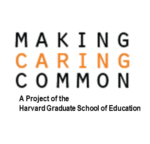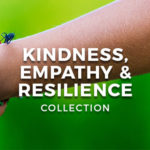Physical & Mental Health
- Depression/Suicide (35)
- Emotional Intelligence (13)
- Health Care Resources for Youth (35)
- Mental Health (81)
- Mindfulness (29)
- Nutrition (52)
- Obesity Prevention (35)
- Resiliency (14)
- Social-Emotional Learning (SEL) (76)
- Trauma-Informed Care (47)
This Trauma-Informed SEL Toolkit has been created by Transforming Education and is a 120-minute professional development session designed for educators seeking research-based strategies to create a healthy classroom environment for students who have experienced adversities and trauma.
This article gives 5 easy Social Emotional Learning (SEL) activities to do at home with your children.
Centervention’s Social Emotional Learning Activities allow you to find lessons, activities, and printables in the following skill areas: Communication, Cooperation, Emotion Regulation, Empathy, Impulse Control, and Social Initiation.
In this “Think Before You Speak” lesson, you’ll focus on modeling what we should think only in our head and what we should actually say out loud.
Using this 60-second strategy with a jar and pom-poms, teach students social and emotional learning skills.
Making Caring Common, a project of the Harvard Graduate School of Education, helps educators, parents, and communities raise children who are caring, responsible to their communities, and committed to justice.
Aperture Education has made a collection of free parent resources to use at home to help their kids (and them) develop social and emotional skills.
Aperture Education has made a 33-page “Educator Guide to Optimistic Thinking” available as a form of professional development, along with other “take-home” PD activities.
To boost social-emotional skills in preschoolers, episodes of Daniel Tiger’s Neighborhood focus on early learning themes.
This collection of videos and lesson plans is about kindness, empathy, and the importance of practicing mindfulness. These resources will help educators foster resilience in students grades 6-12, and include strategies to help teenagers cope with the stresses of everyday life, as well as specific challenges. The collection offers proactive approaches to help students forge new friendships and explore the concepts of self-care, care for others, and the responsibilities associated with being a supportive community member.
In this lesson, Identity and Intersecting Perspectives: Between the World and Me | MacArthur Fellows Program, students explore how our complex identities shape our understanding and experience of our world.
The Understanding LGBTQ+ Identity: A Toolkit for Educators Collection offers a series of digital media resources to help administrators, guidance counselors, and educators understand and effectively address the complex and difficult issues faced by LGBTQ students. The collection features short segments of video content from WNET’s groundbreaking LGBTQ series First Person, a digital series that delivers candid personal narratives illustrating larger conversations about gender, sexuality, social norms, and identity development. The video content is scaffolded by a suite of materials (informational text, conversation guides, discussion questions, and teaching tips) to facilitate their use in professional development settings. When used in tandem, the videos and accompanying educational resources will help promote understanding, awareness, and self-esteem.











